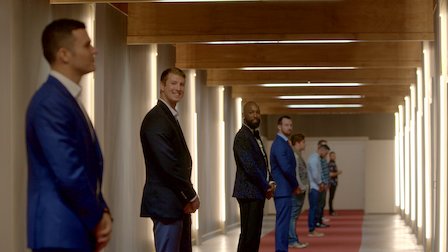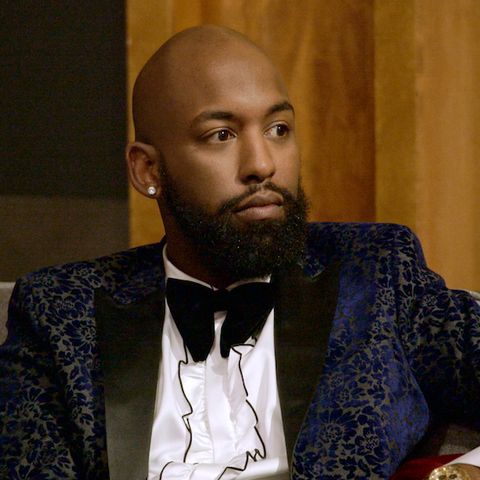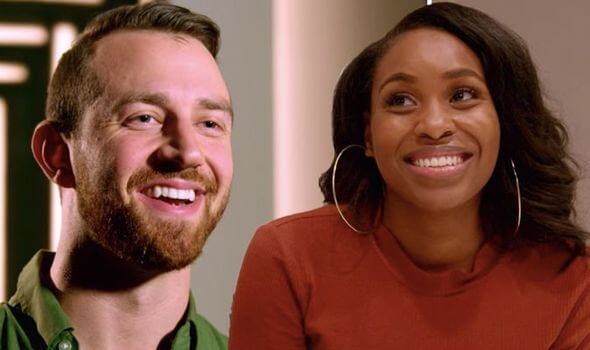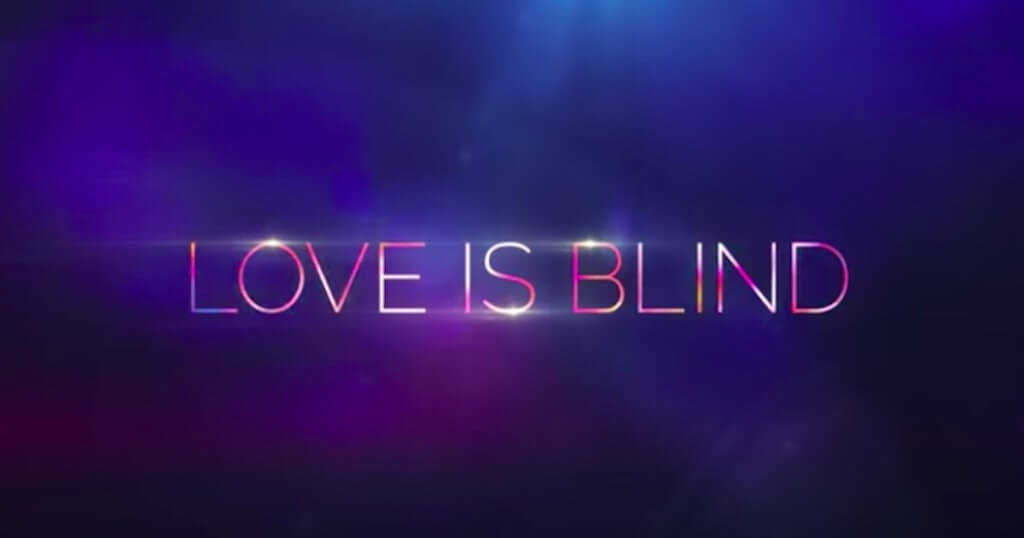Courtesy of Netflix
In case you missed it, we at One Love are hosting a virtual learning series, Relationships Roundups, where we take a closer look at the cycles of unhealthy behavior in pop-culture. The latest? I’ve binge-watched it; you’ve binge-watched it — Love is Blind! From discussing our favorite couples (we stan Cam and Lauren!) to which healthy and unhealthy signs we saw in the show. Here’s a recap of Relationship Roundup: Love is Blind.
Use our questions and talking points to start your own discussion at home.
1. From the very beginning, the narrator and the participants on the show talk about the effects of dating apps. In your opinion, have apps changed the world of dating?
What are the positives and negatives of this?
Love them or hate them, dating apps have their pros and cons. With so many options at your fingertips, it’s important to set healthy personal boundaries while dating online! Before you swipe on a potential partner, remember these tips:
- Move at a comfortable pace and manage the overwhelming amount of options by giving yourself a time limit on apps.
- Be honest with yourself and do some self-reflection before hopping on the apps. You know your needs and desires best! Review our 10 signs of a healthy relationship and journal about what you are looking for in a relationship.
- Be yourself and be true to who you are in your profile and chats. Your future partner will love you for you, so don’t hide who you are!
- Know that you deserve respect and extend it to potential partners as well. When scrolling through profiles, focus on the substance of each person’s profile instead of just on appearance.
- Remember to establish equality. It’s hard to not operate from pure excitement and expectations when we first start to like someone but setting some boundaries will help you feel like you are both putting in equal amounts of effort.
- Don’t forget to have fun! With pressures from all around us to be in a relationship or marriage, it can sometimes feel like we have to skip steps to get to the end. But try to be present in every stage of dating, and remember to trust your gut!
RELATED: 6 Relationship Green Flags to Look Forward to in a Relationship
2. Early on in episode 1, we hear, “I definitely want to get married, if you don’t something is wrong with you.” What messages do we see society emphasize in regard to relationships and marriage?

Courtesy of Netflix
Whether we know it or not, we’re all affected by the pressure to be in a relationship. But equating relationships with happiness instead of uplifting healthy ones is problematic. For starters, it could encourage us to stay in a relationship even when we’re seeing red flags. When we glamorize Instagram couples for their “ideal relationship” we start to look to our partners for happiness that should come from within and we seek to be in a relationship for the sake of being in one instead of actively seeking a healthy one.
So how can we shake this stigma? One way is to safely leave relationships that aren’t making us feel happy and whole. It’s not a bad thing to be single, and it’s certainly not a failure. Loving ourselves first is key — because the most important relationship is the one we have with ourselves, and that independent self can thrive with or without a partner.
3. At one point, Carlton shares that he was previously in relationships with both men and women. He goes on to say he specifically wants a wife because they are nurturing by nature. Later, one of the women says they are looking for a man to wrap their arms around her. How do traditional gender roles play out in this show and in relationships generally? Do we see anyone break gender roles on the show? If so, how?

Courtesy of Netflix
We definitely know there are expectations placed on relationships based on gender roles, like that men have to make the money and women should take care of the home. But putting pressure and stereotypes on a relationship can cause issues. What if a woman makes more money than her male partner or what if the guy is more comfortable being nurturing toward their partner and taking care of the home?
Traditional gender roles can make partners feel like they have to change or conform to fit a mold they don’t want to, especially when it comes to gender non-conforming couples. On Love is Blind we see bisexuality (in Carlton’s case) presented as a major barrier rather than explored as a valid experience that people have, arguably because it breaks away from the gender roles others on the show uphold.
In the end, no matter which genders are present in a relationship, it’s important for relationships to have equality. All parties should have a voice and make decisions together, no matter what the pressures from society trying to say instead.
4. Lauren mentions her deepening connection with Cameron despite their differences in age and race BUT she worries that her friends and family won’t like him. How much input should our friends and family have in our relationships? As a friend, how do we start the conversation if we are concerned?

Courtesy of Netflix
At the end of the day, we all have to make the best decision for ourselves in our relationships. That doesn’t mean we shouldn’t listen to our friends and family when they have concerns since they may see red flags that we are missing. In the early stages of a relationship, we tend to wear “rose-colored glasses” and let all the good things about our partner outweigh unhealthy behaviors.
If you have a loved one you worry may be experiencing less-than-healthy behaviors in a relationship, it can be hard to know how to approach them. Here are our tips for approaching a conversation with a friend who may be in an unhealthy or abusive relationship.
- Start the conversation positively.
- Be supportive.
- Focus on the unhealthy behaviors; not the person.
- Keep the conversation friendly, not preachy.
- Don’t blame.
- Allow them to make their own decisions.
- Offer options (i.e. speaking to an adult or campus counselor)
And remember — whether you’ve seen Love is Blind or not, you can use the above questions to start your own conversation about how healthy and unhealthy relationships look in the world. Read more about One Love’s 10 Healthy and 10 Unhealthy Signs and notice where they pop up in your next Netflix binge!








